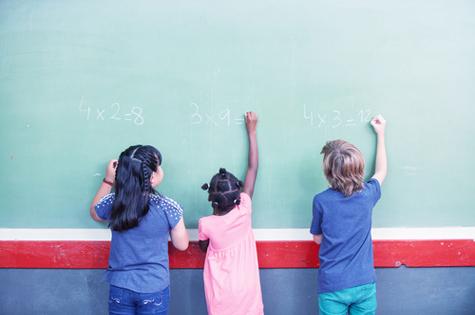With one-in-ten children from low socio-economic areas failing to meet the minimum numeracy standard in Year 5, compared with one-in-100 for their more advantaged peers, an innovative early numeracy program known as Let's Count may be the answer.
Developed jointly by The Smith Familly, Professor Bob Perry of Charles Sturt University and Associate Professor Ann Gervasoni of Monash University, and funded with $1.6 million in financial support from the Origin Foundation, Let's Count has been shown to help 3-5 year olds in lower socio-economic communities to improve their mathematical skills and confidence.
The assessment comes after a three-year evaluation of the program which gives young children early exposure to mathematics, including counting, measurement, patterns and spatial awareness.
"We know that childhood maths skills predict later maths achievement," said Anne Hampshire of The Smith Family. "These results clearly show how we can improve disadvantaged children's mathematical skills and confidence and help set them up for success at school.
"Numeracy is a critical skill for everyday activities like budgeting, taking medication and cooking. It's also a key skill for employment, and mathematics is essential for the future of innovative economies," said Ms Hampshire.
More than half of the children (54%) who participated in the Let's Count program were able to count to 20 compared with 37% of children who didn't take part. Two-thirds (66%) could put one-digit numbers in order compared with 47%, and three-in-five children who took part could perform basic division (using teddies and mats) compared with 31% who did not participate in Let's Count.
"By letting so many children - the majority from disadvantaged backgrounds - grow up with poor numeracy skills, we're undermining the future health of our communities, economy and broader society," Ms Hampshire said.
* * *
The evaluation report can be found at The Smith Family.



















__small.png)










